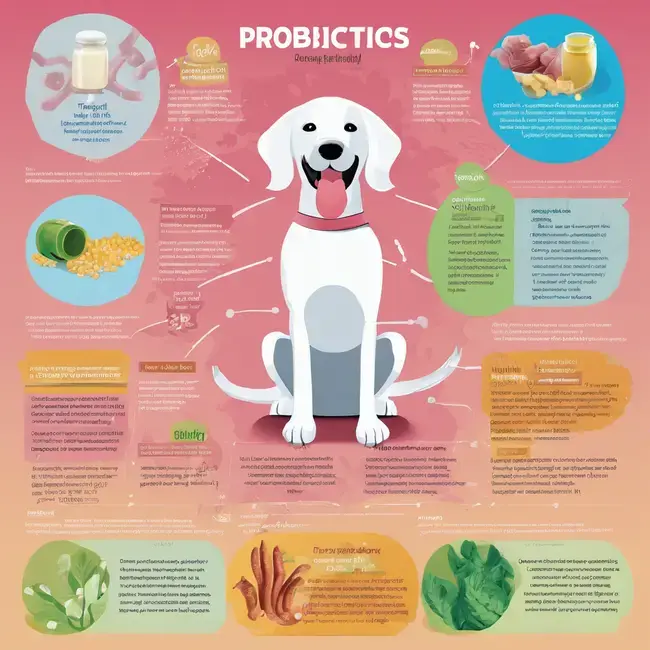Is Tuna Good for Dogs? Discover The 10 Benefits And Risks

- Can dogs eat tuna?
- Is tuna good for dogs?
- How much tuna is safe for dogs?
- Nutritional value of tuna for dogs
- What are the health benefits of tuna for dogs
- What are the risks of tuna for dogs
- How to cook tuna for dogs
- Is canned tuna good for dogs?
- Can dogs eat tuna in water?
- Can dogs eat tuna with mayo?
- Can dogs eat tuna salad?
- Is tuna good for dogs with diarrhea?
- Is tuna good for dogs with kidney disease?
- Is tuna good for dogs with pancreatitis?
- Other safe alternatives to tuna for dogs
- Conclusion
- Frequently Asked Questions (FAQs)
- Resources
This post may contain affiliate links, meaning I may earn a commission if you make a purchase, at no extra cost to you. I only recommend products I trust. Thank you for your support.
When it comes to feeding our dogs, it’s essential to ensure that their diet is both nutritious and safe.
Tuna is a popular fish commonly found in our kitchens, but can dogs eat tuna and is tuna good for dogs?
In this article, we will explore the benefits and risks of tuna for dogs, providing you with all the information you need to make an informed decision about incorporating this fish into your dog’s diet.
So, let’s delve deeper into the topic to understand why tuna can be a great addition to your dog’s diet.

Can dogs eat tuna?
Yes, dogs can eat tuna and is even included in some commercial dog foods. Tuna is a rich source of protein, omega-3 fatty acids, vitamins, and minerals, which are all beneficial for dogs.
However, tuna contains relatively high levels of mercury so it should be given in small amounts and infrequently to minimize the risk of mercury poisoning.
Is tuna good for dogs?
Yes, tuna is good for dogs and can be an excellent addition to a dog’s diet when fed in moderation and occasionally. It is a great source of lean protein, which is essential for muscle development and growth.
Additionally, tuna is rich in omega-3 fatty acids, which contribute to a healthy coat, reduced inflammation, and improved brain function in dogs.
The presence of vitamins and minerals, such as vitamin D, vitamin B12, selenium, and potassium, further enhances the nutritional value of tuna for dogs.
How much tuna is safe for dogs?
While tuna can be beneficial for dogs, it’s crucial to feed it in moderation. It is generally advised to offer tuna to dogs very occasionally and in very small portions.
This helps to prevent any potential problems associated with excessive consumption of tuna, such as mercury poisoning or nutritional imbalances.
It’s also advisable to avoid feeding tuna to puppies, as they have a lot of growing up to do, and specially designed puppy food formulas provide them with everything they need for healthy growth.
Nutritional value of tuna for dogs
Tuna is packed with essential nutrients that can benefit your furry friend’s overall health.
Here are some of the key nutrients found in tuna for dogs:
- High quality protein (Especially tuna in water with no added salt)
- Omega-3 fatty acids (EPA and DHA)
- Vitamins (B12, B6, niacin, riboflavin)
- Minerals (selenium, phosphorus, magnesium, potassium)
- Low carbohydrates
- Moderate calorie content
What are the health benefits of tuna for dogs
Feeding tuna to your dog can offer several benefits.
Here are some of the health benefits of tuna for dogs:
1. Rich in nutrients
Tuna for dogs is abundant in essential nutrients such as protein, vitamins B3, B6, B12, potassium, magnesium, phosphorus, and selenium, all contributing to a dog’s overall health.
2. Healthy skin and coat
The omega-3 fatty acids found in tuna can help improve the condition of your dog’s skin and coat, reducing dryness and itchiness.
3. Supports joint health
Tuna’s anti-inflammatory properties can provide relief for dogs suffering from joint conditions like arthritis, promoting better mobility and comfort.
4. Improves cognitive function
The omega-3 fatty acids in tuna support brain health, enhancing cognitive function and potentially reducing the risk of cognitive decline in older dogs.
5. Weight management
Tuna for dogs is low in unhealthy fats, particularly saturated and trans fats. This can help prevent obesity and reduce the risk of related health issues in dogs.
6. Supports heart health
The presence of omega-3 fatty acids in tuna can help maintain a healthy heart by reducing inflammation, improving blood flow, and lowering the risk of cardiovascular diseases.
7. Energy support
The nutrients in tuna for dogs, including protein and B vitamins, support a dog’s metabolism and provide energy for their daily activities.
8. Immune system support
The vitamins and minerals in tuna, such as selenium and B vitamins, support a dog’s immune system, helping to keep them healthy and resilient.
9. Supports digestive health
Tuna provides essential nutrients that support a dog’s digestive system, contributing to overall digestive health.
10. Muscle development
Tuna is a good source of high-quality protein, which is essential for muscle development and maintenance in dogs.
What are the risks of tuna for dogs
While tuna offers numerous benefits, it’s essential to be aware of the potential risks associated with feeding it to your dog.
Here are some risks of tuna for dogs to consider:
1. Mercury poisoning
Tuna, especially larger species like albacore and yellowfin, can contain higher levels of mercury. Prolonged consumption of large tuna can lead to mercury poisoning in dogs.
Mercury poisoning symptoms in dogs include:
- Vomiting
- Diarrhea
- Loss of appetite
- Abdominal pain
- Weakness
- Ataxia (loss of coordination)
- Tremors
- Seizures
- Increased thirst and urination
- Kidney damage/failure
- Excessive drooling
- Skin ulceration
- Hair loss
- Respiratory distress
2. Allergic reactions
Some dogs may be allergic to fish, including tuna. It’s important to monitor your dog closely for any signs of an allergic reaction, such as itching, redness, swelling, or gastrointestinal upset.
3. Bones and thorns
If you’re feeding fresh tuna, be cautious of any bones or thorns that may be present. These can pose a choking hazard or cause internal injuries if ingested.
4. High thiaminase content
Tuna contains thiaminase, an enzyme that can break down thiamine (Vitamin B1). If a dog consumes large amounts of tuna (especially raw tuna) over time, it can lead to a thiamine deficiency and related health issues.
5. Excessive salt content
Some forms of tuna, especially canned tuna, can be high in salt. Excessive salt intake can lead to sodium ion poisoning in dogs, resulting in symptoms such as vomiting, diarrhea, seizures, and in severe cases, can be fatal.
6. Diet imbalance
If not fed in moderation, tuna can lead to an imbalance in a dog’s diet. While it offers several nutritional benefits, excessive consumption can upset the balance of nutrients in a dog’s overall diet.
7. Parasite and bacterial contamination
Raw or undercooked tuna can potentially contain parasites or harmful bacteria that can cause foodborne illnesses in dogs.

How to cook tuna for dogs
If you decide to incorporate tuna into your dog’s diet, it’s important to cook it properly to ensure it is safe and easy to digest.
Here are some guidelines for cooking tuna for dogs:
- Start with fresh, high-quality tuna fillets. Avoid using canned tuna, as it often contains added salt or other seasonings that may not be suitable for dogs.
- Remove any bones or thorns from the tuna fillet to prevent choking hazards or injuries.
- Rinse the tuna fillets under cold water to remove any potential contaminants.
- Cook the tuna thoroughly by grilling, baking, or steaming it for about 6 to 8 minutes. Avoid using excessive oils, spices, or seasonings that may upset your dog’s stomach.
- Allow the cooked tuna to cool before serving it to your dog. Cut it into bite-sized pieces for easier consumption.
Is canned tuna good for dogs?
Yes, canned tuna can be good for dogs if fed in moderation, but it’s important to choose the right type. Opt for canned tuna that is packed in water rather than oil or brine.
Water packed tuna is lower in fat and sodium, making it a healthier option for dogs. However, it’s still crucial to read the label and ensure that no additional seasonings or additives have been included.
Can dogs eat tuna in water?
Yes, dogs can eat tuna in water in moderation. Tuna canned in water is a safer option for dogs compared to tuna canned in oil or brine, as it contains less salt and fat.
Can dogs eat tuna with mayo?
No, it is generally best to avoid feeding tuna with mayo to dogs because of the high-fat content in mayo which can lead to digestive upset or weight gain in dogs.
Additionally, mayo often contains ingredients like onion, garlic, or spices that can be harmful to dogs. So, it’s always safer to stick to plain, cooked tuna without any added condiments or dressings.
Can dogs eat tuna salad?
No, dogs should not eat tuna salad as it contains ingredients like mayo, onions, and pickles which can be harmful to dogs.
These various ingredients found in tuna salad can cause digestive issues or even toxicity. It’s best to avoid feeding your dog tuna salad and stick to plain, cooked tuna instead.
Is tuna good for dogs with diarrhea?
No, feeding tuna to a dog with diarrhea is generally not recommended. The high protein content and potential mercury contamination in tuna can worsen diarrhea in dogs.
So, while tuna is nutritious, it may not be the best choice for a sensitive digestive system. It’s best to consult with your veterinarian for appropriate dietary recommendations if your dog is experiencing diarrhea.
Is tuna good for dogs with kidney disease?
No, feeding tuna to dogs with kidney disease is not recommended. Tuna is high in phosphorus, which can put additional strain on the kidneys of dogs with kidney disease.
It’s important to follow a specialized diet prescribed by your veterinarian, which takes into account the specific needs of your dog’s kidney condition.
Is tuna good for dogs with pancreatitis?
No, tuna may not be suitable for dogs with pancreatitis. Pancreatitis is an inflammation of the pancreas, and fatty foods like tuna can trigger or exacerbate this condition.
It’s best to consult with your veterinarian for a tailored diet plan that considers your dog’s pancreatitis and any other underlying health conditions.
Other safe alternatives to tuna for dogs
If you’re looking for alternatives to tuna, there are several other foods that can provide similar nutritional benefits for your dog.
Here are some options to consider:
- Broccoli: Rich in vitamins and fiber, broccoli can be a healthy addition to your dog’s diet.
- Bananas: High in potassium and vitamins, bananas make for a nutritious and tasty treat for dogs.
- Pineapple: Packed with vitamins and enzymes, pineapple can aid in digestion and provide a natural source of sweetness.
- Shrimp: A lean source of protein, shrimp can be fed to dogs in moderation as a treat or topping.
- Cantaloupe: This refreshing fruit is low in calories and high in vitamins A and C, making it a healthy choice for dogs.
- Celery: Low in calories and high in fiber, celery can be a crunchy and healthy snack for dogs.
- Cauliflower: This cruciferous vegetable is packed with vitamins and minerals, making it a nutritious addition to your dog’s diet.
- Olive Oil: A small amount of olive oil can be added to your dog’s food to provide healthy fats and improve coat condition.
- Peas: High in fiber and vitamins, peas can be served cooked or frozen as a tasty and nutritious treat.
- Rice: Plain, cooked rice can be offered as a bland meal option for dogs with digestive upset or as a source of carbohydrates.
- Salmon: Similar to tuna, salmon is rich in omega-3 fatty acids and can provide numerous health benefits for dogs.
Conclusion
So, is tuna good for dogs? yes, tuna can be a nutritious addition to your dog’s diet when fed in moderation and prepared properly.
It offers various health benefits, including improved skin and coat, joint health, cognitive function, and heart health.
However, it’s important to be aware of the risks associated with tuna, such as mercury contamination and potential allergic reactions.
Always consult with the best veterinarians before making any significant changes to your dog’s diet. Remember, every dog is unique, and their dietary needs may vary.
You may also be interested in these trending articles:
- Top probiotics for dogs
- Is corn good for dogs?
- What is chicken meal in dog food?
- Is raw chicken safe for dogs?
- 7-day PCOS diet meal plan
- How to get rid of belly fat forever
- The menopause diet 5 day plan to lose weight
- 90-30-50 diet plan for weight loss
- 7-day bone broth diet plan
- 7-day diet plan for high blood pressure
- Caretaker vs caregiver
Frequently Asked Questions (FAQs)
Can dogs eat tuna every day?
No, it is not recommended to feed dogs tuna every day. Tuna should be given occasionally in moderation as part of a balanced diet.
Is tuna bad for dogs?
Tuna is not inherently bad for dogs, but it should be fed in moderation and occasionally to avoid potential risks associated with excessive consumption or mercury contamination.
Can dogs eat tuna and rice?
Yes, tuna and rice can be fed to dogs as a bland meal option for digestive upset. However, it should not be a long-term dietary choice.
Can dogs eat raw tuna?
No, dogs should not eat raw tuna as it can pose the risk of bacterial contamination and parasites. It’s best to cook tuna thoroughly before feeding it to your dog.
Can dogs eat tuna fish bones?
No, fish bones can pose a choking hazard and cause internal injuries in dogs. It’s advisable to remove all bones from tuna before feeding it to your dog.




